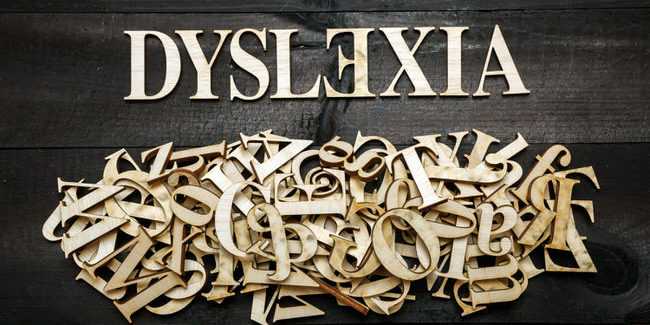There are many misconceptions about what dyslexia is, who gets it, what causes it and how it should be treated. As a result, this learning disability can be incorrectly diagnosed and be left untreated for years.
Table of Contents
ToggleFor parents with children with dyslexia, it can often be challenging to understand what dyslexia is and how to best advocate for your child. Naturally, as you navigate through the journey of raising a child with symptoms of dyslexia you will gain insight into your child’s learning needs and how to support your child along the way.
In this post, we will explore a few dyslexia facts that every parent who has kids with dyslexia should know.
What is Dyslexia?
Dyslexia is one of the most common learning disorders in adults and children. It is a disorder that affects the area of the brain that processes language, which makes it difficult for those who are diagnosed with dyslexia to identify specific sounds and how they relate to words and letters.
Dyslexia affect issues with other skills, including:
- Mathematics
- Reading comprehension
- Spelling
- Writing
While children do not outgrow dyslexia, there are numerous therapies, resources, assistive technology tools and teaching methods that can help students and people suffering from dyslexia live normal lives.
Dyslexia Facts: What You Should Know
1. Dyslexia is one of the most common learning disabilities.
According to the Society of Neuroscience, about 15% of the people in the United States have dyslexia.
2. An estimated 1 in 10 people have dyslexia.
Studies suggest that 1 in 10 people have dyslexia; this equates to about 700 million people worldwide being affected by a learning disorder.
3. Dyslexia can run in families.
If a parent is diagnosed with dyslexia, it is more likely that their child will also develop dyslexia.
4. Those diagnosed with dyslexia are more likely to struggle with organizational skills, prioritizing, and time management.
In addition, they may also struggle with concentrating on one task. If you notice any changes in the way your child learns or behaves, be sure to contact your child’s primary care doctor to discuss your findings.
5. Those diagnosed with dyslexia are born with the disorder.
If you notice signs of dyslexia at an early age, a specialist can recommend exercises and learning techniques to help improve your child’s literacy.
6. Not all school systems are equipped to work with children with dyslexia.
Although all school systems should be equipped with tools to help students with dyslexia succeed in the classroom, that is not always the case. It is vital for parents to advocate for changes in the school system as well as work with a specialist to improve their child’s literacy skills. Click here to find special education schools.
7. Early intervention for children with dyslexia should start as soon as possible.
Early intervention is key for children with dyslexia. Many children learn to read by identifying how certain speech sounds create words and then relating those sounds to letters. Over time, children learn how to turn those sounds into words. For children can learn dyslexia, this process can be difficult.
Dyslexia can learn affect people in varying degrees, so symptoms can change from one patient to another. In some cases, a teacher or school official may notice that your child is experiencing learning difficulties in the classroom and notify you. However, it is important to follow up with an experienced professional for a formal diagnosis.
Dyslexia can be diagnosed through a comprehensive evaluation by an experienced specialist or psychologist. Your child’s pediatrician can help coordinate your evaluation and educate you on the best steps to take.
8. Dyslexia is the most common reason for writing, reading, and spelling difficulties.
If your child is experiencing any difficulties in any of the areas above, be sure to discuss your concerns with a trusted professional. A professional can work with you to explore your child’s treatment options and order the appropriate testing.
9. Untreated dyslexia can lead to behavioral difficulties in children.
In addition to behavioral issues, if left untreated, dyslexia can lead to low self-esteem, anxiety, and difficulties socializing.
10. Children with dyslexia can succeed.
Receiving a dyslexia diagnosis does not mean your child will struggle with reading and writing forever. With advancements in learning disability research, there is a wider range of resources available for children with dyslexia than ever before. Take a look at many successful and famous people with learning disabilities who succeeded.


